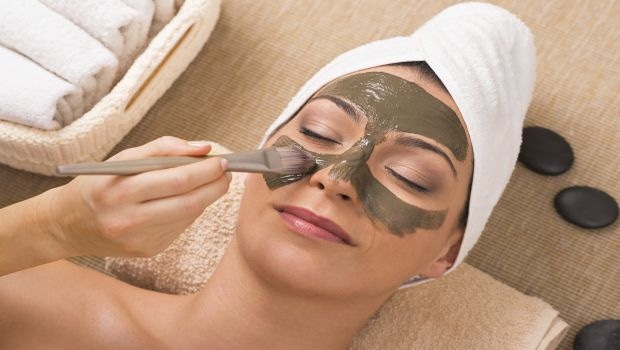Sea-based products are undoubtedly growing in popularity among functional food and beverage applications, but there's another place consumers are likely to find these fishy ingredients: in their beauty products.

Sea-based products are undoubtedly growing in popularity among functional food and beverage applications, but there’s another place consumers are likely to find these fishy ingredients: in their beauty products.
New research recently confirmed the soothing, protective and anti-ageing properties of two seaweed extracts developed for cosmetic and skincare applications. The extracts, developed by Australian biotechnology company Marinova Pty. Ltd., are derived from the Undaria pinnatifida and Fucus vesiculosus species of seaweed. These species are rich in fucoidan, a natural polysaccharide unique to brown algae, and polyphloroglucinol, a type of polyphenol found primarily in marine plants.
Both seaweed extracts were tested in vitro and in human clinical trials. The human clinical studies were framed to assess the ability of the ingredients to improve the condition and appearance of the skin. Clinical trials were also undertaken to evaluate the extent to which the compounds protect and soothe skin exposed to UV radiation.
In human clinical trials, the Fucus vesiculosus extract reduced wrinkle depth and improved overall skin appearance. It was also shown to reduce age spots and increase radiance. These clinical findings corroborate in vitro tests, which have confirmed that this extract is a potent inhibitor of key enzymes responsible for skin damage including collagenase, tyrosinase and elastase.
The extract from Undaria pinnatifida was also shown to reduce wrinkle depth and improve overall skin appearance. Clinical trials further confirmed that this extract increases moisture retention following UV exposure. The Undaria extract was also shown to reduce redness after UV exposure, as well as activate key genes associated with wound healing. Additionally, in vitro tests confirmed that this compound inhibited glycation and reduced the activity of radical-producing enzymes, such as myeloperoxidase.
Importantly, both seaweed extracts were found to increase the expression of SIRT1, a protein known for its longevity-boosting and anti-ageing activity. Marinova branded the Fucus vesiculosus and Undaria pinnatifida extracts as Maritech® Bright and Maritech® Reverse, respectively.
“The cosmetics industry has long-promoted the benefits of seaweeds and seaweed extracts," said Helen Fitton, chief scientist at Marinova. “Unfortunately, the true efficacy of many seaweed ingredients is largely unknown. It was this lack of evidence that motivated Marinova to develop cosmetic ingredients of consistent quality and with proven bioactivity."
Seaweed isn’t the only marine ingredient known for its beauty benefits. Fish proteins such as amino acids and peptides are also known to boost collagen production in skin, which can help improve skin elasticity and reduce wrinkles. In the INSIDER anti-aging article, “Use it or Lose it," Lara Niemann, marketing director, Americas, GELITA, explained how connective tissue loses its elasticity during the aging process, and how collagen can help the skin stay firm. The article also discussed how a focus on prevention and “starting early" to protect the skin has driven consumers in their 30s and 40s to become main purchasers within the booming skincare market. Women in particular have become more concerned with maintaining a youthful appearance, so they want skincare products early to take minimal corrective action later in life.
Read more about sea-based ingredients in the nutriocosmetic sector on page 6 of INSIDER’s article, “Sea-nery: The Marine Ingredient Market."
About the Author(s)
You May Also Like




.png?width=800&auto=webp&quality=80&disable=upscale)